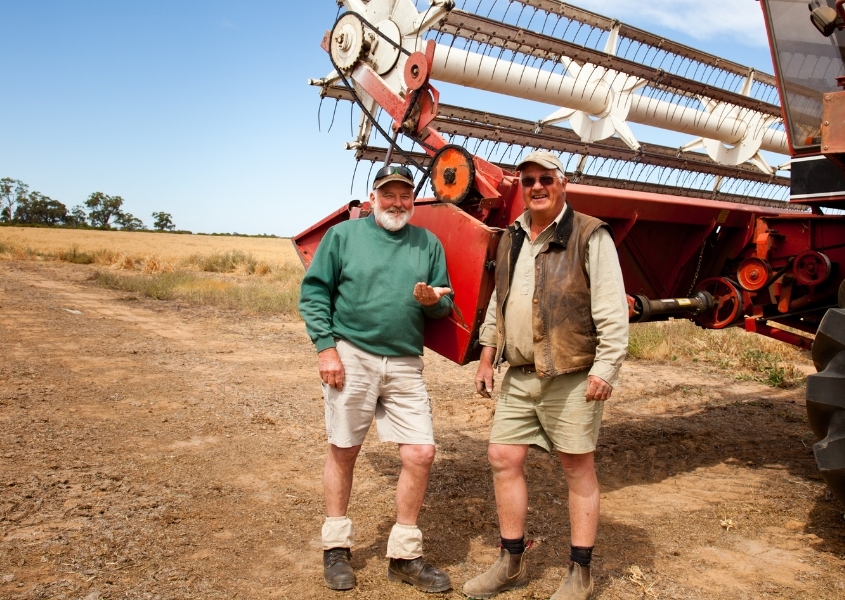Running a farm is no small task, and whether you’re a farm owner or a farm-hand, the work can be relentless. But no matter how dedicated you are, everyone needs a “proper” break. In fact, a well-deserved, uninterrupted 2-week break is not just a luxury—it’s essential for the well-being of both farm workers and the farm itself. Let’s explore why mandating everyone on the farm to take a 2-week break could be one of the best decisions you make for your farm’s long-term success.
The Reality of Farm Life: A Non-Stop Challenge
Farming is an industry known for its demanding nature. Early mornings, long days, and constant physical exertion are all par for the course. For many farm workers, the idea of taking a any break, let alone a 2-week one, may seem impossible. However, this mindset can lead to significant issues, both for the individuals involved and for the farm as a whole.
The Consequences of Not Taking a Break
One of the most pressing reasons to implement a mandatory break is the risk of fatigue. Continuous work without adequate rest leads to mental and physical exhaustion, which can severely impact performance. Fatigue can result in slower reaction times, impaired decision-making, and an increased likelihood of mistakes. On a farm, where heavy machinery, animals, and hazardous materials are part of daily life, these mistakes can have terrible consequences. Some incidents not only endanger lives but also open the door to costly legal battles and workers’ compensation claims, underscoring the importance of proactive safety measures and robust system checks. These claims can be a financial burden on the farm, and they often arise from issues that could have been prevented with proper rest and recuperation.

5 Key Benefits of a Continuous 2-Week Break
- Closing Loopholes – Breaks offer a vital chance to identify process gaps, revealing reliance on undocumented knowledge. Farm owners and managers can address these gaps or ensure the returning team member documents the missing processes for future resilience.
- Enhanced Performance and Productivity – When the person on break return to work, they will be more focused, energised, and productive. This boost in energy can lead to better decision-making, faster problem-solving, and more efficient work—benefiting the entire farm.
- Reduced Fatigue and Better Health – Breaks help prevent burnout and reduce stress, promoting work-life balance. A healthier team means fewer accidents and injuries, reducing the need for costly workers’ compensation claims and keeping everyone safer on the farm.
- A Fresh Perspective – Stepping away from the daily grind can help everyone see things differently. When farm owners and farm-hands return from a break, they often come back with fresh ideas or a new approach to long-standing problems. This fresh perspective can lead to improvements in farm operations that might not have been considered otherwise.
- Improved Team Morale – Regular breaks contribute to higher job satisfaction and improved morale. When workers know that their well-being is a priority, they’re more likely to stay motivated and committed to their work, which in turn boosts overall productivity.
Ensuring Continuity with Effective Systems
Some farm owners may worry about the impact of a team member’s absence on daily operations. However, this concern can be addressed through well-established systems or Standard Operating Procedures (SOPs). Strong systems ensure that any team member can step in and cover for another during their absence. This not only maintains continuity but also helps identify any gaps in the system that need to be addressed.
By sending each farm-hand on a break, you’re also testing the robustness of your farm’s operations. If everything runs smoothly in their absence, you know your systems are strong. If not, you’ve identified areas for improvement. This is a proactive way to prevent the farm from becoming overly dependent on a single person and to ensure that all team members are cross-trained and capable of stepping up when needed. Repeating this process with each break also strengthen your farm’s resilience.
The Best Investment for Your Farm’s Future: Mandating a Continuous 2-Week Break
Mandating a minimum continuous 2-week break is an investment in everyone’s well-being and the farm’s long-term success. It leads to improved performance, better health, reduced risks, and stronger operational systems. By prioritising rest and recovery, you’re ensuring that your farm remains productive, safe, and resilient—no matter what challenges arise.
Ready to implement a 2-week break system on your farm? Schedule a Discovery Call with us for an expert advice on establishing effective SOPs and creating a work environment that values the well-being of every team member. Let’s work together to build a healthier, more sustainable future for your farm.
If you found this article helpful, share it with your network to help others unlock their farming potential. Don’t forget to like and follow us on social media for more insightful tips: Facebook, Instagram, and LinkedIn. Let’s empower more farmers together!

 Enable Ag
Enable Ag Enable Ag
Enable Ag
